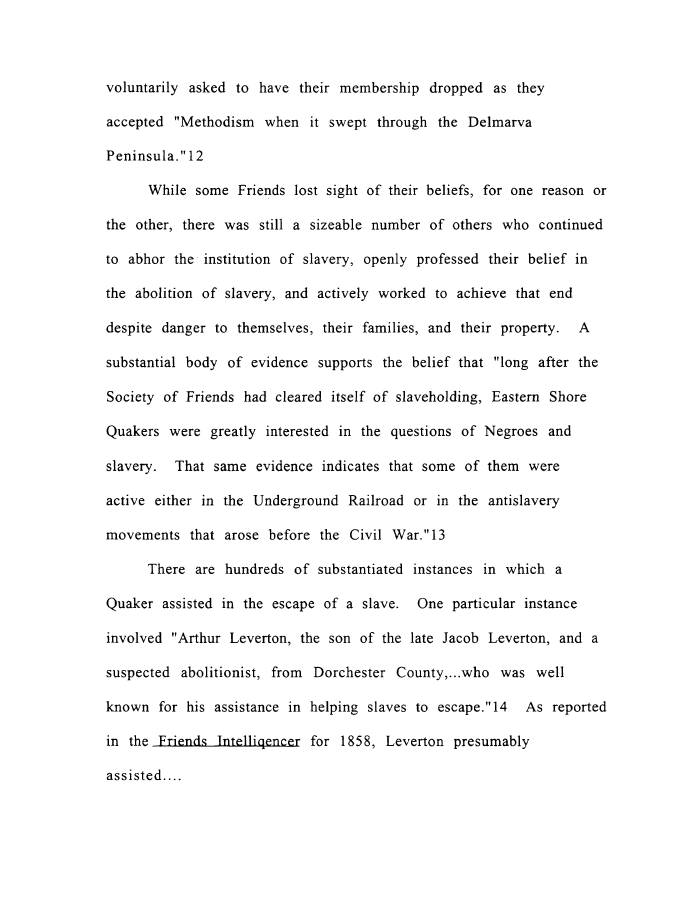 |
||||
|
TASK FORCE TO STUDY THE HISTORY AND LEGACY OF SLAVERY IN MARYLAND (Final Report) 1999/12/31 MdHR 991422 MdHR 991422, Image No: 317 Print image (39K) |
 |
||||
|
TASK FORCE TO STUDY THE HISTORY AND LEGACY OF SLAVERY IN MARYLAND (Final Report) 1999/12/31 MdHR 991422 MdHR 991422, Image No: 317 Print image (39K) |
| voluntarily asked to have their membership dropped as they accepted "Methodism when it swept through the Delmarva Peninsula."12 While some Friends lost sight of their beliefs, for one reason or the other, there was still a sizeable number of others who continued to abhor the institution of slavery, openly professed their belief in the abolition of slavery, and actively worked to achieve that end despite danger to themselves, their families, and their property. A substantial body of evidence supports the belief that "long after the Society of Friends had cleared itself of slaveholding, Eastern Shore Quakers were greatly interested in the questions of Negroes and slavery. That same evidence indicates that some of them were active either in the Underground Railroad or in the antislavery movements that arose before the Civil War." 13 There are hundreds of substantiated instances in which a Quaker assisted in the escape of a slave. One particular instance involved "Arthur Leverton, the son of the late Jacob Leverton, and a suspected abolitionist, from Dorchester County,...who was well known for his assistance in helping slaves to escape."14 As reported in the Friends Intelligencer for 1858, Leverton presumably assisted.... |